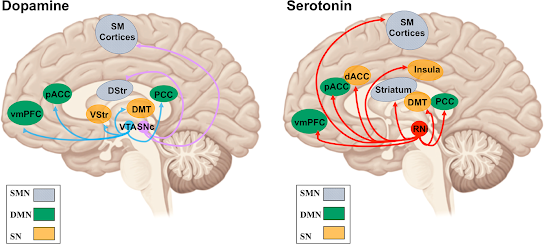Does Serotonin Deficiency Cause Depression
Depression is a debilitating condition that affects millions of people worldwide. While there are many potential causes of depression, one of the most commonly cited is a deficiency in serotonin, a neurotransmitter that plays a key role in regulating mood, appetite, and sleep. In this article, we will explore the relationship between serotonin deficiency and depression, as well as the role that serotonin plays in the body and the potential side effects of manipulating serotonin levels.
How Does Serotonin Work?
Serotonin is a neurotransmitter that is produced in the brain and the intestines. It is believed to play a key role in regulating mood, appetite, and sleep. Serotonin is synthesized from the amino acid tryptophan, and is released from the presynaptic terminal of neurons in response to an action potential. Once released, serotonin binds to postsynaptic receptors, leading to a variety of downstream effects.
One of the key effects of serotonin is to regulate mood. Serotonin acts on the prefrontal cortex and other regions of the brain that are involved in emotion regulation, helping to promote feelings of well-being and happiness. Serotonin also plays a role in regulating appetite and sleep, helping to control hunger and promote restful sleep.
Serotonin: Functions, Normal Range, Side Effects
The normal range of serotonin in the body varies depending on the specific measurement being used. In the brain, typical serotonin levels are in the range of 10 to 100 nanograms per milliliter (ng/ml), while in the blood, serotonin levels are typically measured in the range of 50 to 250 ng/ml.
While serotonin is an important neurotransmitter, manipulating serotonin levels can have a range of potential side effects. Some of the most common side effects of increasing serotonin levels include nausea, diarrhea, and headache. In more severe cases, high levels of serotonin can lead to a condition known as serotonin syndrome, which can cause muscle rigidity, fever, and seizures.
On the other hand, low levels of serotonin can also have negative effects on the body. A deficiency in serotonin has been linked to a range of conditions, including depression, anxiety, and obsessive-compulsive disorder. When serotonin levels are low, it can lead to feelings of sadness, low mood, and reduced interest in activities that were once enjoyable.
Does Serotonin Deficiency Cause Depression?
While it is clear that serotonin plays an important role in regulating mood, the relationship between serotonin deficiency and depression is more complex than it might seem at first glance. While low levels of serotonin have been linked to depression, it is not entirely clear whether serotonin deficiency causes depression, or whether depression causes serotonin deficiency.
One possibility is that a deficiency in serotonin can contribute to the development of depression. Studies have shown that people with depression often have lower levels of serotonin than those without depression, and that increasing serotonin levels can help to alleviate symptoms of depression in some cases. However, it is also possible that depression itself can lead to changes in serotonin levels. For example, chronic stress has been shown to reduce serotonin levels in animals, and it is possible that similar changes occur in humans with depression.
Overall, the relationship between serotonin deficiency and depression is complex and multifaceted. While there is evidence to suggest that low levels of serotonin can contribute to the development of depression, it is not yet clear whether serotonin deficiency is a primary cause of depression or whether it is a secondary effect of other underlying factors.
Conclusion
Serotonin is an important neurotransmitter that plays a key role in regulating mood, appetite, and sleep. While low levels of serotonin have been linked to depression, the relationship between serotonin deficiency and depression is complex and not fully understood. While it is clear that serotonin is an important player in the development and management of depression, it is likely that other factors, such as genetics, environment, and lifestyle, also play a role in the development of depression.
It is important to note that while medications that increase serotonin levels, such as selective serotonin reuptake inhibitors (SSRIs), are commonly used to treat depression, they are not effective for everyone. Furthermore, these medications can have a range of potential side effects and may not be appropriate for all individuals with depression.
If you are struggling with depression, it is important to seek professional help. A qualified mental health professional can help you identify the underlying causes of your depression and develop an appropriate treatment plan that may include medications, psychotherapy, lifestyle changes, or a combination of these approaches.
In conclusion, while serotonin deficiency may contribute to the development of depression, it is not the sole cause of this complex condition. More research is needed to better understand the complex interplay between serotonin, mood, and mental health, and to develop more effective treatments for depression and related disorders.



.webp)

Comments
Post a Comment